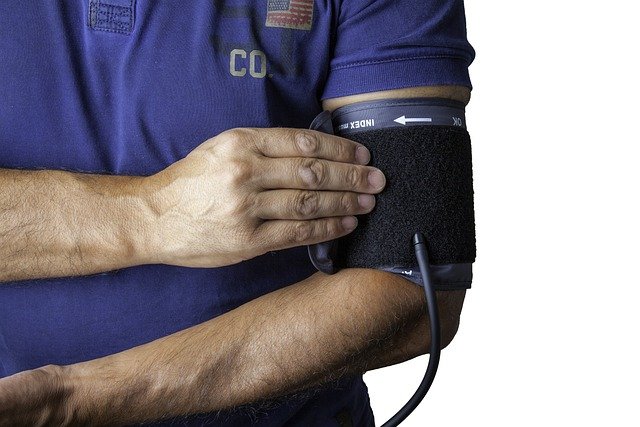Smart Pill Dispensers for Seniors: Enhancing Medication Management and Independence
Smart pill dispensers organize and release medication on schedule, often with reminders or alerts. They are designed to reduce missed doses, especially for seniors or people managing chronic conditions. Some models connect to apps for monitoring and support.

How Do Smart Pill Dispensers Work?
Smart pill dispensers utilize automated systems to organize, store, and dispense medications according to programmed schedules. These devices typically feature a rotating carousel or compartmentalized tray that holds pre-sorted medications. When it’s time to take a dose, the dispenser alerts the user through visual cues, sounds, or both. Many models incorporate Wi-Fi or cellular connectivity to send notifications to caregivers or family members when medications are taken or missed. Advanced units may include tamper-proof locking mechanisms to prevent accidental double-dosing and can accommodate various medication types, including pills, capsules, and sometimes even liquid medications.
Key Benefits of Smart Pill Dispensers for Seniors
Smart pill dispensers offer numerous advantages that can significantly improve medication management for older adults. The primary benefit is increased medication adherence, which helps prevent complications from missed doses or incorrect medication timing. For seniors living independently, these devices provide peace of mind for both them and their families by reducing the need for daily check-ins specifically for medication monitoring. Many models include reminders that continue until the medication is taken, which is particularly helpful for seniors with memory issues or early-stage dementia. Additionally, some dispensers generate adherence reports that can be shared with healthcare providers, enabling more informed treatment decisions and adjustments when necessary.
Features to Consider When Choosing Senior Smart Pill Dispensers
When selecting a smart pill dispenser for an elderly loved one, several important features should be evaluated. First, assess the dispenser’s capacity and compartment size to ensure it can accommodate all necessary medications and dosing schedules. User-friendly interfaces with large buttons and clear displays are crucial for seniors with dexterity issues or visual impairments. Battery backup capabilities prevent disruptions during power outages, while connectivity options determine how alerts and notifications are communicated to caregivers. Some dispensers offer medication refill alerts, which can be sent to family members or caregivers when supplies run low. Lock mechanisms are particularly important for seniors with cognitive impairments to prevent accidental overdosing or tampering with medication schedules.
Popular Smart Pill Dispensers Available for Seniors
The market offers various smart pill dispensers with different capabilities tailored to seniors’ specific needs. Several models have gained popularity for their reliability and senior-friendly features. When considering options, it’s important to compare their specific capabilities against individual requirements.
How Smart Pill Dispensers Support Aging in Place
Smart pill dispensers play a significant role in supporting seniors who wish to age in their own homes. By automating medication management, these devices eliminate one of the primary concerns that often necessitates assisted living arrangements. Research indicates that medication non-adherence contributes to approximately 10% of hospital admissions among older adults, making reliable medication management essential for maintaining independence. Smart dispensers can reduce the burden on family caregivers while providing objective monitoring of medication adherence. This technology bridges the gap between complete independence and needed supervision, allowing many seniors to remain in familiar environments longer while still receiving appropriate medication support.
Comparing Top Smart Pill Dispensers for Seniors
When selecting a smart pill dispenser, comparing available options can help identify the best fit for specific needs:
| Device Model | Capacity | Key Features | Price Range |
|---|---|---|---|
| MedMinder Jon | 28 compartments | Cellular connectivity, no Wi-Fi needed, lockable | $39.99-$64.99/month subscription |
| Hero | Up to 10 medications | Automatic sorting and dispensing, smartphone app, notifications | $29.99-$49.99/month subscription |
| MedaCube | Up to 16 medications | High capacity, biometric access, remote monitoring | $1,299 one-time purchase |
| Pria by BLACK+DECKER | 28 doses | Video calling, voice assistant, facial recognition | $39.95/month subscription |
| Livi | Up to 15 medications | High capacity, tamper-resistant, remote management | $99/month subscription |
Prices, rates, or cost estimates mentioned in this article are based on the latest available information but may change over time. Independent research is advised before making financial decisions.
Integrating Smart Pill Dispensers with Other Health Technologies
Modern smart pill dispensers increasingly work within broader home healthcare ecosystems. Many devices can integrate with health monitoring apps, allowing families to track medication compliance alongside vital signs or activity levels. Some advanced models connect with telehealth platforms, enabling healthcare providers to remotely monitor medication adherence and adjust treatment plans accordingly. Voice assistant compatibility with systems like Amazon Alexa or Google Home provides additional convenience for seniors comfortable with these technologies. As the Internet of Medical Things (IoMT) continues to evolve, smart pill dispensers represent an important component of comprehensive home healthcare solutions that can help seniors maintain independence while receiving appropriate support.
Overcoming Challenges When Introducing Smart Pill Dispensers
While smart pill dispensers offer numerous benefits, introducing new technology to seniors sometimes presents challenges. Many older adults may initially resist technological solutions due to unfamiliarity or concerns about complexity. Successful adoption typically requires patient demonstration, simplified instructions, and ongoing support. Physical limitations like arthritis or visual impairments may necessitate selecting models specifically designed with accessibility features. Technology learning curves can be addressed through gradual introduction and regular practice sessions with family members. Despite these potential hurdles, many seniors successfully adapt to smart pill dispensers when the benefits are clearly demonstrated and proper support is provided during the transition period.
This article is for informational purposes only and should not be considered medical advice. Please consult a qualified healthcare professional for personalized guidance and treatment.




